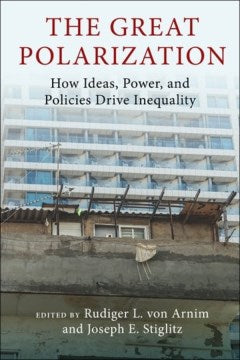
The Great Polarization
Publisher,Columbia Univ Pr
Publication Date,
Format, Hardcover
Weight, 680.39 g
No. of Pages, 390
Inequality in income and wealth has increased dramatically in the United States and many other advanced countries since the mid-1970s. It permeates all aspects of our lives, and is front and center in public and academic debates. Our societies have become more polarized perhaps than any time since the Gilded Age a hundred years ago: the super-rich co-exist with a well-to-do professional class, and the rest struggle in the neverland of big box stores and the gig economy. In The Great Polarization: Economics, Institutions and Policies in the Age of Inequality , the contributors comment on the claim that the rise in inequality in the US in all its facets has been facilitated and exacerbated by policy choices, rather than the 'natural' progression of the underlying forces of economics. Policy choices, in turn, are the outcome of political processes that are heavily influenced by the differential power that groups are able to exert. Opening with an essay by Joseph Stiglitz, he explicates that only this volume's central thesis is broadly consistent with the stylized facts of the increase in inequality in the US, implying that a return of truly progressive policy making, enabled by sufficient political power to enact meaningful reforms in a number of arenas, provides a feasible way forward. All subsequent chapters then expand on specific themes and issues raised in Professor Stiglitz's opening chapter. Section II covers the measurement of inequality and its contextualization vis-▀a-vis the central thesis; Section III surveys selected causes of inequality as they arise from distinct policy choices in specific areas of the economy within society; and Section IV embeds these developments in a broader political context, and outlines an agenda forward to fight for--

